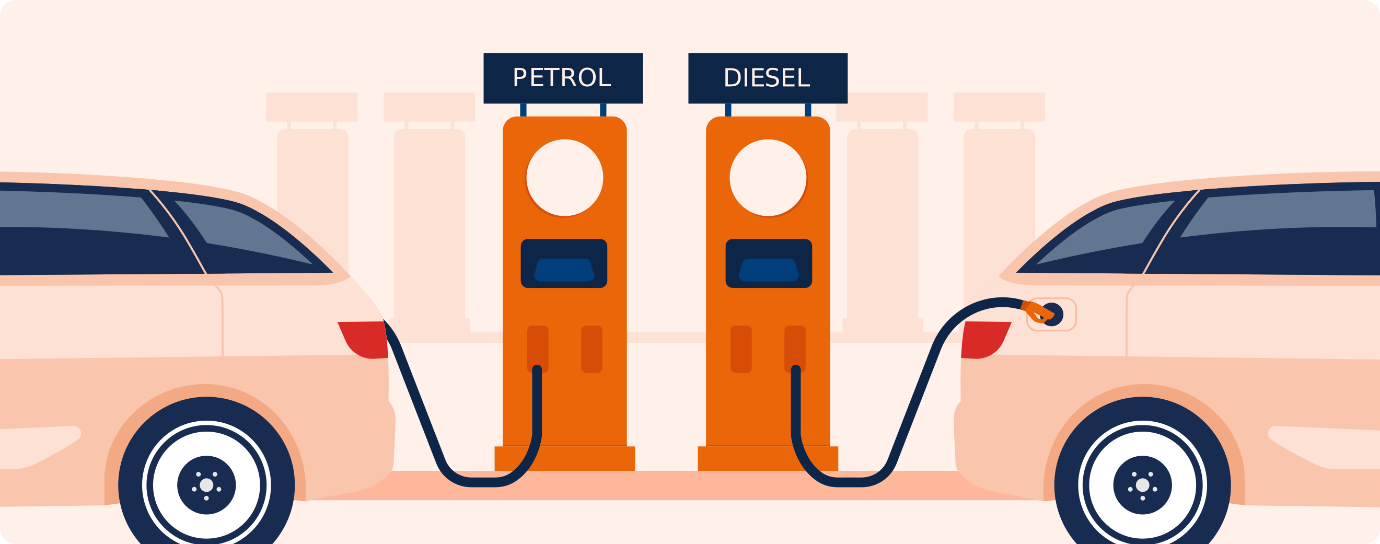Petrol vs. Diesel: How Car Fuel Affects Your Car Insurance Premium?
Understand the impact of petrol and diesel engines on the car insurance premium and it will help you to understand the things that you should consider at the time of purchasing a car.

Just as not all cars cost the same, all car insurance premiums also do not cost the same. Of the many factors that influence a car’s premium, one is the fuel type or variant of the car. Whether your car is a petrol or diesel variant affects the cost of car insurance premiums. Wondering why? The reason is simple. The car fuel type impacts many other factors that have a direct influence on the insurance cost. Some of those factors are:
1) Cost of the vehicle
The cost of the vehicle is important in determining insurance premiums. A diesel car is often priced higher as compared to its petrol counterpart. Since the price of a car is directly related to the cost of its insurance, the higher the price of a car the higher will be the insurance charge. You will find this when you compare the online car insurance cost for diesel and petrol cars.
2) Cost of repair
Cost of repair can have an impact on the insurance premium charged. Typically, a car with a diesel engine involves a higher cost of maintenance over the years. So, insurance companies tend to charge a higher premium for cars with a diesel engines when compared to their petrol counterpart. The same is also true for high-end cars and cars with expensive spare parts.
3) Insurance Declared Value or IDV
It is the estimated market value of a vehicle and has a direct impact on the cost of insurance premiums. Since the cost of a vehicle with a diesel model is higher, its IDV will also be higher, thereby affecting the cost of insurance. The decrease in the IDV of a diesel car would be slower so the renewals would still be more expensive than that for petrol variants.
4) Engine capacity
The engine capacity of the vehicles can also influence the cost of insurance premiums for the cars. Since the engine capacity of diesel-driven cars is it raises the parameters on which the cost of insurance is valued. On the other hand, petrol-driven cars have a comparatively lower level of engine capacity.
5) Fuel efficiency
One of the most important factors that must be considered while buying a car is its fuel efficiency. Petrol cars are best when it comes to achieving initial power but diesel cars run best in higher gears. In the long run, diesel cars seem to be more fuel-efficient than petrol cars.




